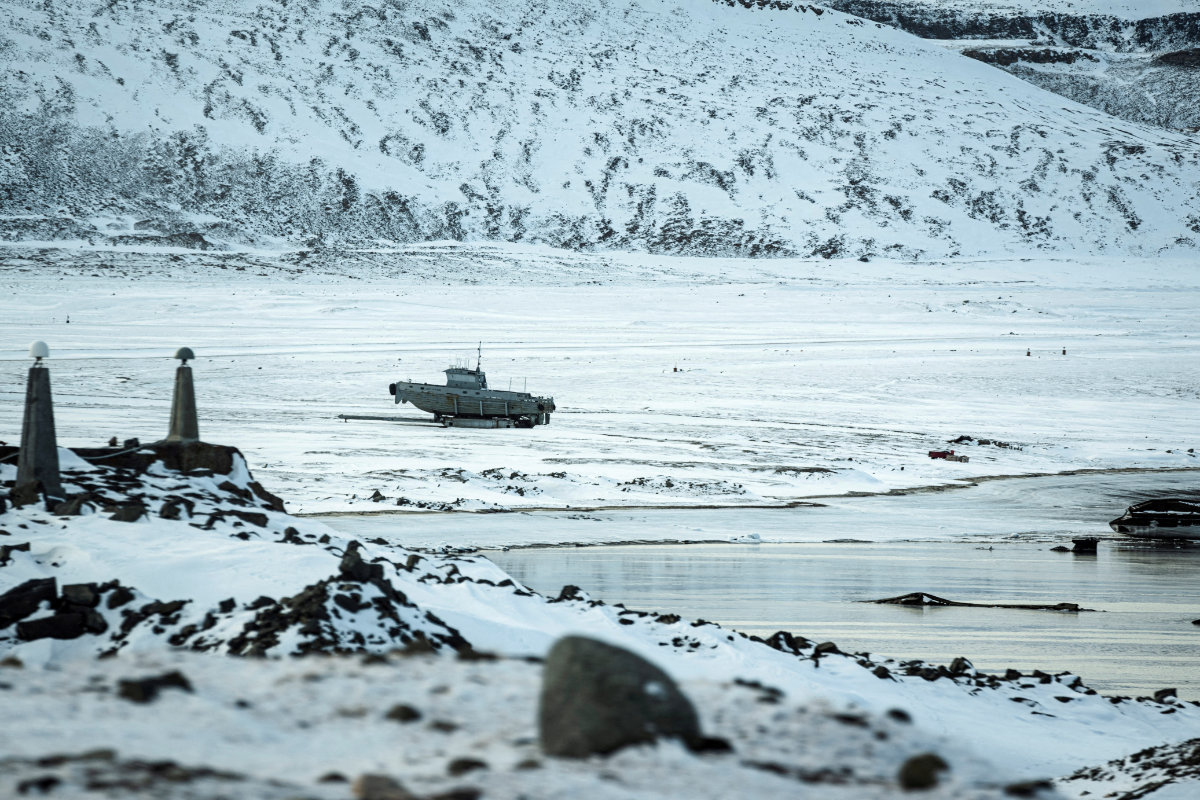LITITZ, Pennsylvania: Donald Trump gave a profane and conspiracy-laden speech two days before the presidential election, talking about reporters being shot and suggesting he “shouldn’t have left” the White House after his 2020 loss to Democrat Joe Biden.
In remarks Sunday that bore no resemblance to his standard speech in the campaign’s closing stretch, the former president repeatedly cast doubt on the integrity of the vote and resurrected old grievances about being prosecuted after trying to overturn his defeat four years ago. Trump intensified his verbal attacks against a “grossly incompetent” national leadership and the American media, steering his rally in Lancaster, Pennsylvania, at one point on to the topic of violence against members of the press.
The GOP nominee for the White House noted the ballistic glass placed in front of him at events after a gunman’s assassination attempt in July at a rally in Butler, Pennsylvania. Trump talked about places where he saw openings in that protection.
“I have this piece of glass here,” he said. “But all we have really over here is the fake news. And to get me, somebody would have to shoot through the fake news. And I don’t mind that so much.”
It was the second time in recent days that Trump has talked about guns being pointed at people he considers enemies. He suggested former Rep. Liz Cheney, a prominent Republican critic, wouldn’t be willing to support foreign wars if she had “nine barrels shooting at her.”
With less than 48 hours before Election Day, Trump continues to promote falsehoods about elections and argue that he can only lose to Democrat Kamala Harris if he is cheated, even though polls suggest a tight race.
Some of his allies, notably former chief strategist Steve Bannon, have encouraged him to prematurely declare victory on Tuesday even if the race is too early to call. That’s what Trump did four years ago, kicking off a process of fighting the election results that culminated in the Jan. 6, 2021, insurrection at the US Capitol.
For much of this year, Trump has run a relatively disciplined campaign that emphasized the issues and voters his aides believe could deliver him victory, even as he clung to false theories about voter fraud and went on frequent digressions stirring controversy. But that discipline is increasingly collapsing.
Trump in recent weeks has joked about golfer Arnold Palmer’s genitalia, continued using gendered or sexist language in his efforts to win over women and staged a rally at New York’s Madison Square Garden that included crude and racist insults that dominated headlines.
Trump co-campaign manager Susie Wiles, long credited with bringing order to his often-chaotic political operation, watched the former president silently from off stage Sunday.
His campaign later sought to clarify his meaning in talking about the media.
“President Trump was brilliantly talking about the two assassination attempts on his own life, including one that came within 1/4 of an inch from killing him, something that the Media constantly talks and jokes about,” campaign spokesperson Steven Cheung said in a statement. “The President’s statement about protective glass placement has nothing to do with the Media being harmed, or anything else.”
Harris was campaigning Sunday in Michigan, where she told a predominately Black church congregation in Detroit that God offers America a “divine plan strong enough to heal division.”
The two major candidates offered starkly different tones with the campaign almost at an end, as Harris said voters can reject “chaos, fear and hate.”
Trump usually veers from subject to subject, a discursive style he has labeled “the weave.” But outside the Lancaster airport, he went on long tangents and hardly mentioned his usual points on the economy, immigration and rote criticisms of Harris.
Trump referred to John Bolton, his former national security adviser and now a strident critic, as a “dumb son of a b— .” And he repeated familiar and debunked theories about voter fraud, alleging that Democrats could only win by cheating. Public polls indicate a tight and competitive race across the battleground states that will determine the Electoral College outcome.
“It’s a crooked country,” Trump said. “And we’re going to make it straight. We’re going to make it straight.”
Harris pushed back at Trump’s characterizations of US elections, telling reporters after the church service that Trump’s comments are “meant to distract from the fact that we have and support free and fair elections in our country.” Those “good systems” were in place in 2020, Harris said, and “he lost.”
The vice president said she trusts the upcoming vote tally and urged voters, “in particular people who have not yet voted to not fall for this tactic, which I think includes, suggesting to people that if they vote, their vote won’t matter.”
“Trump’s unhinged ramblings and dangerous rhetoric confirm what those closest to him have already told us: he is completely unfit to lead and would put our democracy and the rule of law at risk if given a chance,” Alex Floyd, a spokesperson for the Democratic National Committee, said in a statement, referring to former Trump aides who have warned against returning him to the White House, including retired military officers who said he’s a fascist.
Trump, for his part, acknowledged that he was sidestepping his usual approach with his conspiratorial speech. He repeatedly talked about disregarding the advice of his aides, repeating their feedback in a mocking voice and insisting that he had to talk about election fraud despite their objections.
Trump at one point suggested that he wouldn’t deliver this version of his speech again: “I hope you’ve enjoyed this,” he said, “because I’m only doing this one time.”
Indeed, his next speech a few hours later at an airport in Kinston, North Carolina, drifted between prepared remarks and familiar stories. Trump praised David McCormick, the businessman running for Senate in Pennsylvania, appearing to briefly lose track of his location but quickly recovering.
“Where’s David? Is he around some place?” Trump said. “You know we just left him. He’s a great guy.”
Some rallygoers began leaving almost immediately. One of them was Whitney Riley, 60, who said she desperately wanted to stay but had another event. She noted Trump started late.
“I got to see him land. I got to see him open,” said Riley, wearing Trump’s signature “Make America Great Again” hat and an American flag scarf. “And that’ll have to be enough.”

































